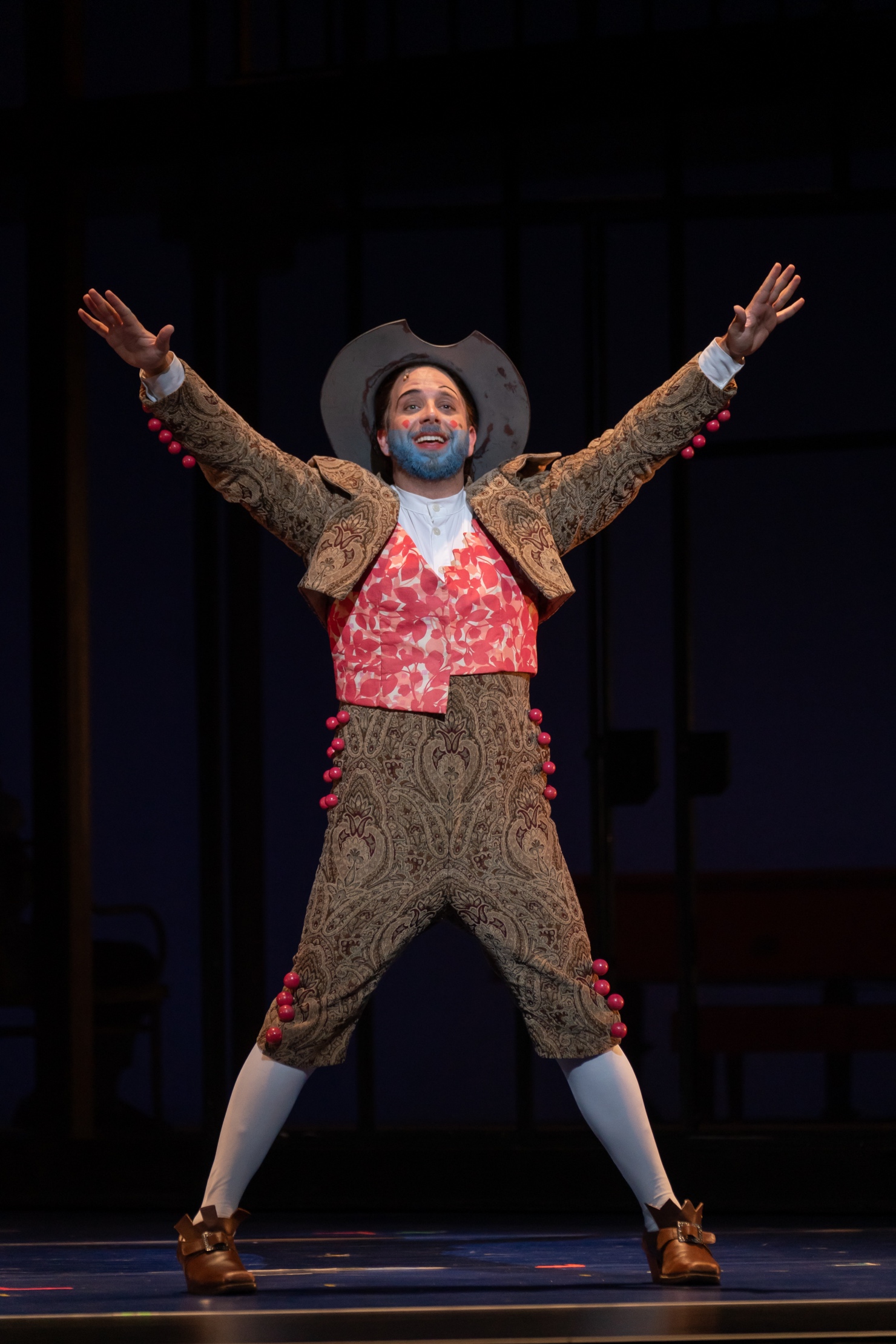
Little room for creativity in Font's WTO Barber
ReviewFriday, August 9, at the Filene Center for the Performing Arts at Wolf Trap, the Young Artist Program at Wolf Trap Opera presented Rossini’s The Barber of Seville. This was a co-production with multiple opera houses around the world, including Houston Grand Opera and Opera Australia. As usual, the individuals in the company were top notch vocally, but unfortunately the production over all fell flat.

The orchestra was led by Lidiya Yankovskaya, who took the already lengthy overture at slow pace. At times it dragged, but the tempo did ensure accuracy in the rapid fire cadenzas. Sadly, there were a few moments between the chorus and the orchestra that were a little off; but what lacked in those larger ensemble moments was made up for in the recitatives.
This staging did not leave room for the performers’ creativity to show the growth of the relationships.
Everyone can agree that recitative with harpsichord can be the most daunting aspect of opera, and these singers and orchestra handled it with aplomb. It flowed so well, and helped make the story move forward with energy. Personally, I find Rossini’s writing to be repetitive and slightly boring, and that fact is only compounded with the singing actors have no idea how to handle lengthy recits. Thankfully that was not the case on Friday night.

Count Almaviva was sung by Christopher Bozeka, who displayed a magnificent legato line and stellar high notes. Johnathan McCullough, in the title role of Figaro, possesses a fine and flexible baritone, but his stage action lacked intent. His entrance and traditionally show-stopping aria, “Largo al factotum”, had a lack of staging. Figaro stood stage left for most of the aria (overall, the show would have been more cohesive with more staging and set pieces), while a few couples from the chorus interacted in tableau to highlight the nature of romantic relationships that Figaro sings about. On the opposite side of the stage a light beamed through a scrim enclosed room of a barber shop. Figaro is breaking the fourth wall in this comedic aria, but in my opinion he still needs to be interacting with people on stage.

Rosina was seen from a balcony-catwalk (so there was a few differing levels). Taylor Raven was a beautiful Rosina, giving the character an air of confidence and of course, sassiness. Calvin Griffin sang a solid Bartolo, and seemed at ease on the outdoor pavilion. Another standout was the supporting role of Fiorello, sung by Justin Burgess. He exuded a youthful vivacity from the stage, and I am sure there are wonderful things in store for this baritone.

The night had gorgeous weather (a rarity for August in Northern Virginia), a stunning outdoor venue, and very skilled singing. In all stage drama - but especially in opera - the relationships of the characters are key. Why else would we sit and listen to characters repeat their lyrics over and over? This staging did not leave room for the performers’ creativity to show the growth of the relationships.
Though the opera and the original Beaumarchais play don’t have as layered a plot as its sequel, The Marriage of Figaro, I think there is still a lot of depth to the characters in this comedy. How else do these characters become the messy people featured in the second instalment? I love that these young and deserving singers get the chance to build up their outdoor opera singing chops, with the rise of summer festivals around the world.
See you next summer, Wolf Trap Opera!


Comments